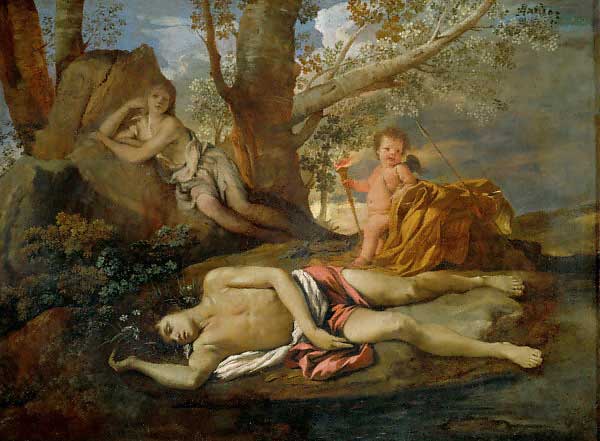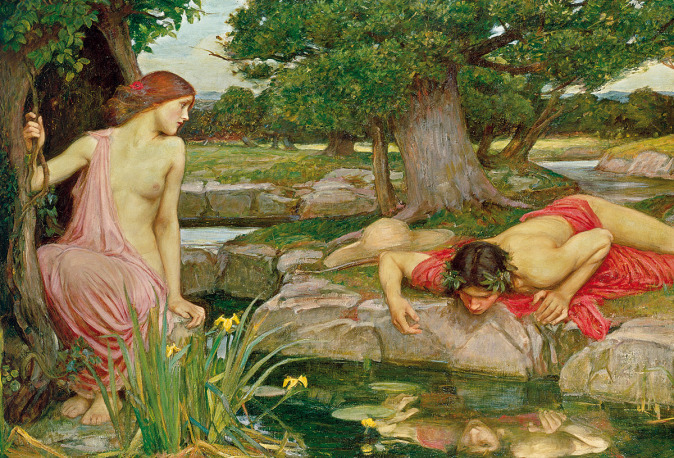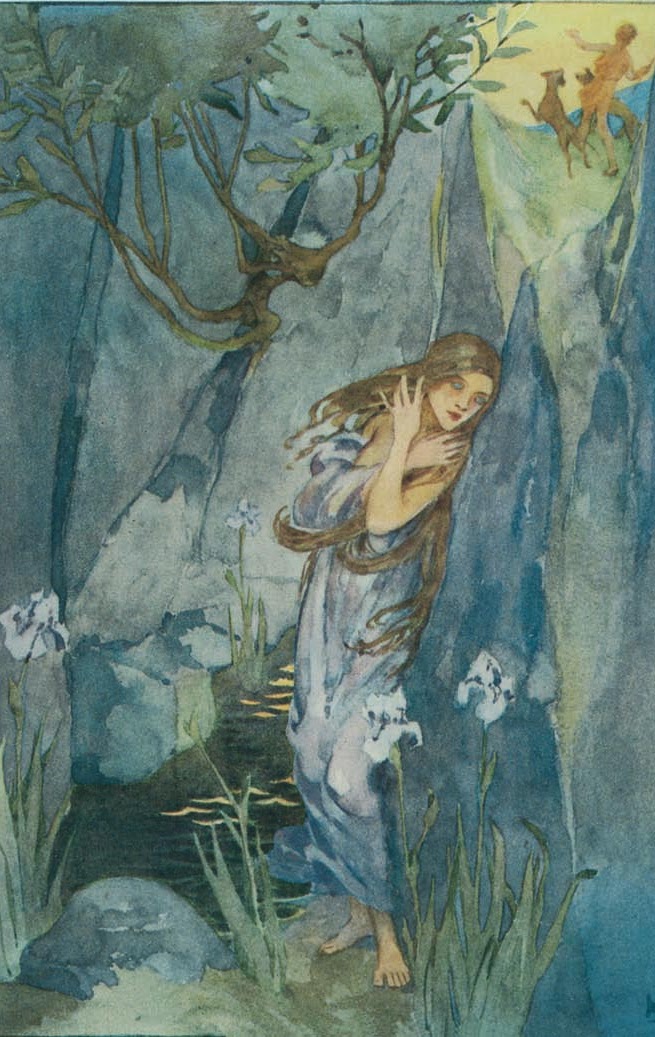Echo
The Mythical Voice that Resonates in Greek Mythology

"Echo was a nymph, and her myth attempts to explain the phenomenon of echo while simultaneously highlighting the appropriate female behavior in ancient Greece.
There are many versions of Echo's story. In the first of these, she provoked the wrath of Hera, while in a second, she fell eternally in love with the most beautiful man of antiquity, Narcissus. Echo, as a follower of Hera had the obligation to serve the queen of the gods with faith and devotion. However, she was forced by Zeus to cover up his infidelities by engaging Hera in endless conversations. When the goddess discovered the deception, she cursed Echo, causing the nymph to lose her ability to express her own thoughts, being only able to repeat the words of others. In mythology, this punishment is analogous to the act of hubris: because Echo violated her duties towards Zeus, her punishment was to depend on others to express her words.
In the second version of the story, the nymph secretly watched Narcissus during his hunt in the forest. Her love for him was strong, but due to Hera's curse, she could only repeat Narcissus's words. When she tried to approach the hunter, he rejected her. With a broken heart, the nymph retreated deep into the forest, where she spent the rest of her life mourning for Narcissus until the only thing that remained was the echo of her voice.

One of the most well-known myths is that of Pan and Echo, described by the ancient writer Longus, who lived in the 3rd century AD. In this story, Echo rejected the love of her admirer. Pan, the god of shepherds and flocks, appeared as half-man, half-goat. Echo, beyond her beauty, had a sweet, singing voice and played many musical instruments. Although Pan was a god, Echo rejected his feelings, which enraged him. This led to an attack by a mob of shepherds who lynched Echo, leaving only the sound of her voice in the forest.
In this version, Echo's transgression was not that she tried to approach a man, but that she did not respond as she should have to a man's desires. However, this extremely wild story is mentioned by the author as part of a larger myth, which included the coming-of-age of a girl named Chloe. Often, this coming-of-age was symbolized by the transformation of the girl, such as becoming a tree or a spring. Echo's story was told to Chloe as a dramatic element to highlight the happy ending of her own love with a young man named Daphnis."
